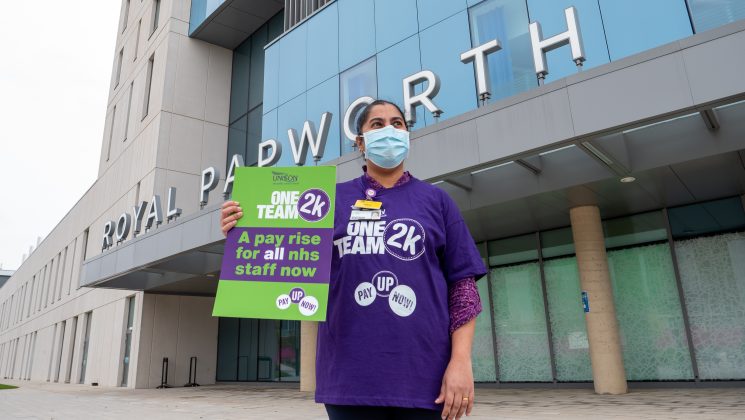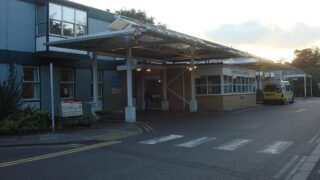Hundreds of health staff across the East of England – including nurses, paramedics, cleaners, domestics and porters – are writing to the region’s 58 MPs asking them to back UNISON’s call for NHS staff to get an early pay rise in time for Christmas.
Staff employed in hospitals, clinics and ambulance stations are urging local politicians to put their case to the government for a significant pay rise of at least £2,000 for every worker across the NHS.
The NHS pay rise is due next April, but health workers, already worn out from the early stages of the pandemic, say bringing the increase forward would help staff feel more valued as the second wave surges.
Bringing the planned wage rise forward a few months would also place the NHS in a better position to face the future, say Eastern health workers.
The pandemic has affected staff profoundly and many may choose to leave the NHS, such are the levels of exhaustion says UNISON. Raising pay this year could persuade staff to change their minds and make the NHS more attractive to thousands of much-needed recruits, adds the union.
With the arrival of winter, the second virus wave and the increasing rates of infection, UNISON believes now is the perfect time for the government to show the high regard in which ministers say they hold NHS staff.
UNISON Eastern regional head of health Sasha Savage said: “Health workers are exhausted from the first virus peak. They’re now dealing with the second wave and a backlog of cancelled treatments.
“We can rely on them as always to protect and care for us all. But staff are fearful and anxious because they know what lies ahead.
“Now is the time for a significant pay rise from the government. Workers doing the job would then feel valued, and an increase could attract much-needed new recruits.”
Eastern health workers who’ve written to their local MPs include:
Tom Carr, who works as a ward clerk on a Bedford Hospital paediatrics ward. He’s often the first point of contact for children and families and manages admissions and discharge on the ward. For three months during the first wave of the pandemic he had to cover an extra four or five wards as his colleagues were off sick or shielding.
“I saw things I never thought I would as a receptionist – people taken out in body bags, patients hooked up to ventilators in corridors.
“Staff had a breather over the summer. Now as we face a second wave with the added winter pressures I fear many could break if they don’t get that extra incentive, leaving the NHS even more threadbare.”
 Lucinda Barrett works as a change management officer in Basildon, Essex. She said: “After Boris Johnson came out of hospital he sang NHS workers’ praises but we’ve yet to see any changes.
Lucinda Barrett works as a change management officer in Basildon, Essex. She said: “After Boris Johnson came out of hospital he sang NHS workers’ praises but we’ve yet to see any changes.
“I wrote to my MP to support my colleagues on the front line – without these modern-day heroes risking their lives, often being separated from their families to care for complete strangers, where would our nation be? How many of our loved ones would die? Surely £2,000 is a small price to pay!”
Earlier in the year, a UNISON/Savanta ComRes poll showed that a majority of the public (69%) think all NHS staff should get an early pay rise. Two thirds (66%) of the public believe a wage increase for employees should be significant in light of the Covid-19 pandemic.
An overwhelming majority (85%) believe pay should increase.
UNISON estimates that a £2,000 pay rise for all NHS staff would cost around £2.8bn in England (plus additional spending in the devolved administrations).
Agenda for Change staff in the NHS are currently covered by a three-year pay and reform deal, due to end on 31 March 2021.
The UNISON claim is for an increase of at least £2,000 to every point on the NHS salary scale. This would take minimum earnings up from around £18,000 to £20,005 and take the lowest rate in the NHS above the real living wage.
The £2,000 would be worth 8% for a newly qualified band 5 worker (for example, a nurse, paramedic or IT manager) and would take their annual salary to £26,907.


